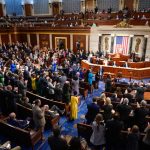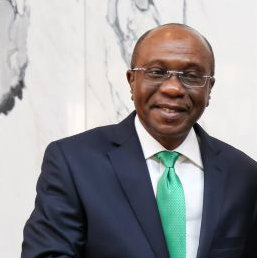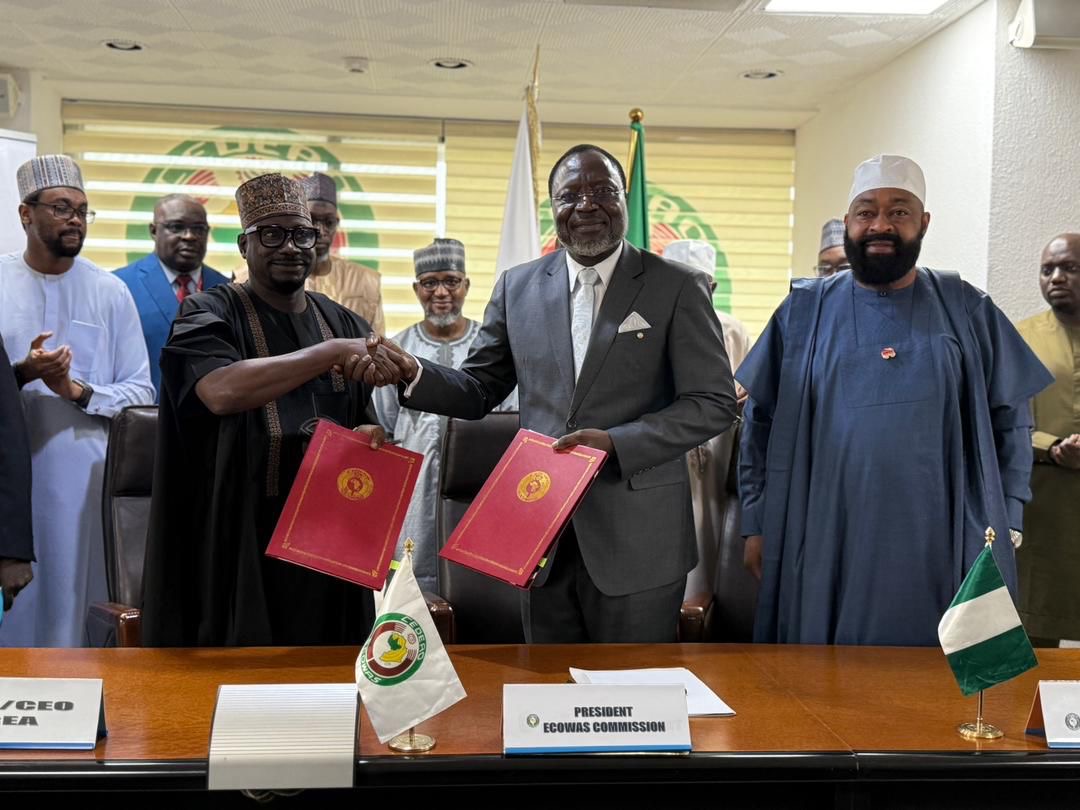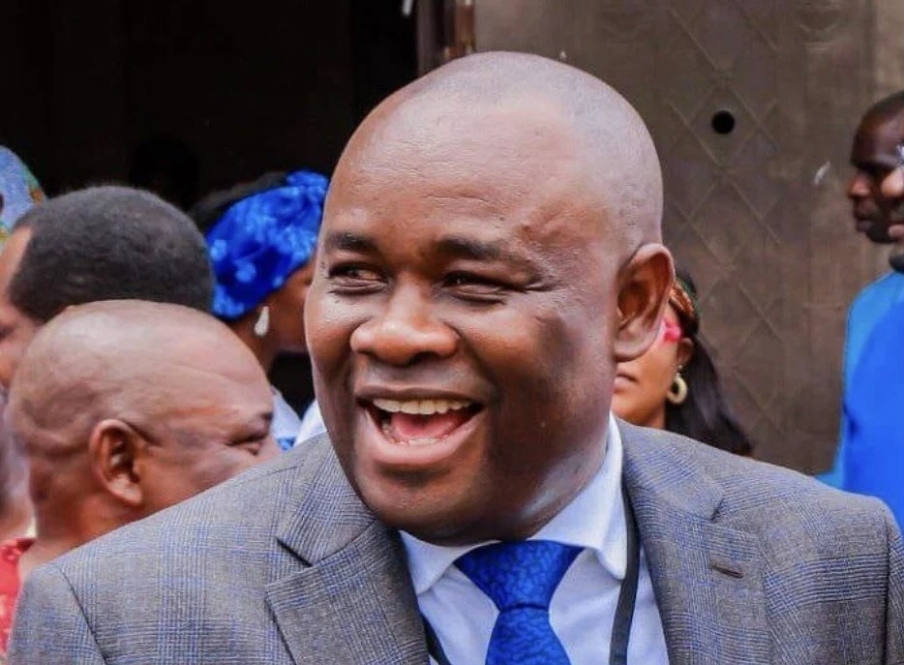By Stella Igwe-Adesoga
It was not out of caprice that President Muhammadu Buhari reappointed Dr Godwin Emefiele, in May 2019, to serve a second five-year tenure as Governor of the Central Bank of Nigeria (CBN). This made him the first apex bank boss to serve two terms since the country’s return to democracy, as well as the second such reappointment in the history of the bank. An uncommon elite consensus has graciously conceded that merit persuaded the president’s swift, executive action.
Adroitly navigating under President Muhammadu Buhari’s broad development vision, the Dr. Godwin Emefiele-led CBN has fundamentally changed the economic trajectory of the nation through specific innovative interventions in job creation, priority agricultural production support, accelerating the economic growth and more.
At a basic level, Nigeria’s economy is not worse than most other comparable commodity exporting emerging economies. But as a consequence of opening up the nation’s economy to “all-comers” – especially agricultural imports – and dropping all capital controls by the previous administrations, performance of the economy naturally dipped and required proactive interventions by a guru to resuscitate it.
In the strategic agriculture sector, four commodities (rice, fish, sugar, and wheat) consume over N1.3 trillion annually in import bill. The intervention schemes in the agriculture sector (including the ACSS, CACS, NIRSAL, etc.) aim to improve domestic supply of these commodities and eventually moderate pressure on foreign reserves. In fact, the CBN’s Anchor Borrowers’ Programme which piloted in Kebbi is now pumping over 1 million metric tonnes of rice into the Nigerian market – provoking sour grapes from some Asian countries which export to the country.
This represents over 20 per cent of total consumption. By the time this is fully implemented nationwide, Nigeria will not only be self-sufficient in rice production but a major global producer of rice. And this why the CBN governor is stoutly backing border closures to enable domestic production properly kick in.
The CBN under Emefiele deeply believes in the need for Nigeria to efficiently attain self-sufficiency in agricultural production. Take for instance in the production and processing of tomatoes. In fact, the extant macroeconomic policy stance of the Bank, consistent with the president’s development objective, is to support the self-sufficiency in food production with the derivative benefits of increased job creation, poverty alleviation, economic growth and development.
To boost local production and reposition Nigeria towards self-sufficiency, the CBN is implementing a development agenda through various interventions in the agriculture sector, the restriction of certain items, including, rice, tomato paste and concentrates and others from accessing the domestic Foreign Exchange (FX) market, and introduction of a 60:40 FX allocation to key domestic manufacturing and agriculture ventures.
The CBN has also extended its Anchor Borrowers’ Programme to the tomato industry and supported key players in the industry like Dangote Farms Ltd and Erisco Foods through direct interventions and FX dispensations. These policies have opened doors for domestic investors and have indisputably helped the agricultural sector to grow.
In particular, its development financing schemes have so far provided a total of N10.7 billion in bridge financing for a number of companies including Erisco Foods (N3.0 billion), Dangote Farms Ltd I & II (N2.0 billion), Tropical General Investments (N1.99 billion), Savannah Integrated (N1.6 billion), Vegefresh Company (N1.5 billion), and others.
Launched in November 2015, ABP was conceived as a low-interest loan scheme that gives ample flexibility for re-payment. To make the loan farmer-friendly, interest was reduced to as low as nine per cent. However, with the advent of the COVID-19 pandemic, the interest was adjusted to five per cent. The loans are disbursed through any of the Deposit Money Banks, DMBs, Development Finance Institutions, DFIs and Microfinance Banks, MFBs, all of which the programme recognises as Participating Financial Institutions, PFIs.
The ABP was to provide farm inputs in kind and cash to small-holder farmers, SHFs, to boost agricultural production. The essence of the small-holder farmers-focus was to deepen and widen the scope of agricultural production as well as maximise the output within the value chain. With the crash in crude oil prices resulting in low forex receipt for the nation, experts see in agriculture a veritable sector to rely on in the effort at diversifying the economy.
Whole scale reliance on crude oil receipts by successive Nigerian governments meant that other sectors suffered gross neglect. Agriculture which in the ’70s sustained the regional economies was relegated to the background. This created a very unhealthy balance of payment between the country and other nations. The ABP was therefore aimed at reversing the negative economic trend aside from achieving food security.
Categories of farmers captured under this programme include those cultivating cereals, cotton, roots and tubers, sugarcane, tree crops, legumes, tomato and livestock. Just as rice farmers have benefited from the programme, other crop farmers are also beneficiaries, including those involved in the processing of the crops for food, raw materials and other uses.
In five years, about four million farmers cutting across over 20 farm produce have so far benefited from the programme. Mr Yila Yusuf, Director, Development Finance Department of CBN recently disclosed that the sum of N554.61 billion had been disbursed through the programme since inception.
Diverse stakeholders and analysts have continued to fete the CBN and its governor for envisioning and sustaining the ABP. This, they argue, has saved the nation from unforeseen embarrassment and hunger during the lockdowns occasioned by the COVID-19 pandemic last year. Prior to the commencement of the programme, Nigeria was a heavy importer of food items, including those that could easily be grown in the country.
According to Emefiele, CBN’s effort “is about making Nigeria, being the largest country in Africa and the most populated in the continent, not to miss the opportunity at this time to move forward. We have a leader, President Muhammadu Buhari, who is totally committed to the development and rediscovery of Nigeria and I think he deserves all the support, particularly from people like us that he has great confidence in. What we are doing here is to say that Nigeria must make progress.”
Read Also: Omicron: UK re-introduces pre-departure tests for all arrivals, adds Nigeria to travel red list
He quickly dismisses the mounting notion that his interventions are exceeding the boundaries of his Central Banking brief. Hear him: “The central bank is an entity within the larger entity called Nigeria. So, when you talk about interference, by virtue of the fact that the central bank is putting in place, policies that would help to engender growth, policies that would help to create job, there is no conflict in that and in fact, it has nothing to do with the independence of the CBN.
“The independence of the CBN is enshrined in the amended CBN Act of 2007, and nothing is altering or in any way, affecting the independence of the CBN. When you say your mandate as CBN is price and monetary stability, it must be price and monetary stability that is conducive to growth, conducive to creating jobs and conducive to ensuring that industries remain alive, whereas the primacy of your mandate, which is price and monetary stability remains intact.”
Some may have forgotten that during the COVID-19 pandemic lockdown, Nigerians did not starve, especially with other countries playing protectionist politics with food export. Rather, the country was able to feed on what she could produce.
As a way of encouraging more farmers to enlist in the ABP, CBN says it no longer accepts cash from them as repayment for their loans; instead, the apex bank rates every single commodity they produce and guarantees the price. This has helped to build farmers confidence in the programme as well as win their trust with the ultimate goal being to encourage more farmers to enrol in the programme.
According to an elated Emefiele, the CBN had financed 2,923,937 smallholder farmers cultivating 3,647,643 hectares of land across 21 commodities through about 33 participating financial institutions in the country. This has created millions of jobs through the various strata of the value chain and boosted local investments.
The current agricultural revolution has certainly not only stood Buhari out among past leaders but has positioned Emefiele as Nigerian farmers’ best ally and friend in the history of the CBN. What’s more – CBN’s Emefiele is unquestionably changing Nigeria’s agricultural growth story with his policies opening wide doors for genuine investors.
Adesoga is the Assistant Editor of Persecond News.























Leave a comment